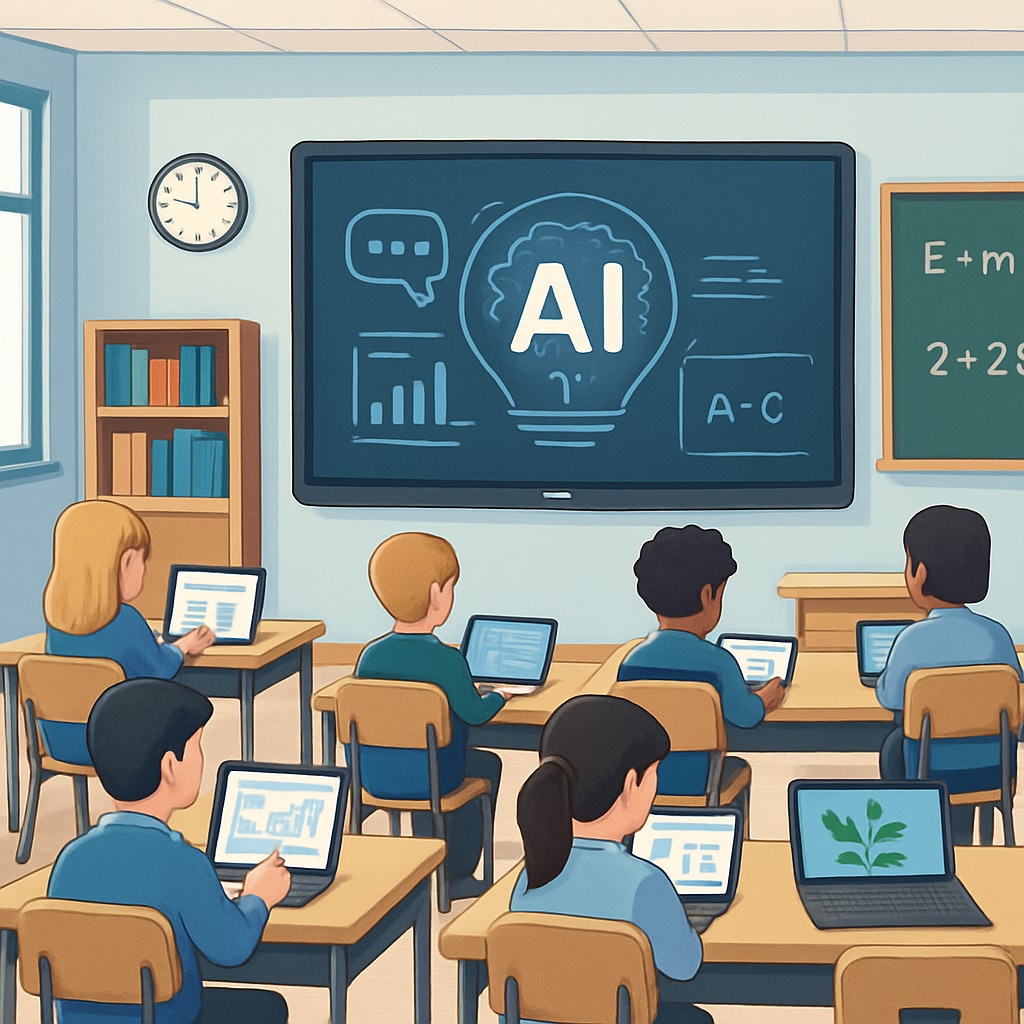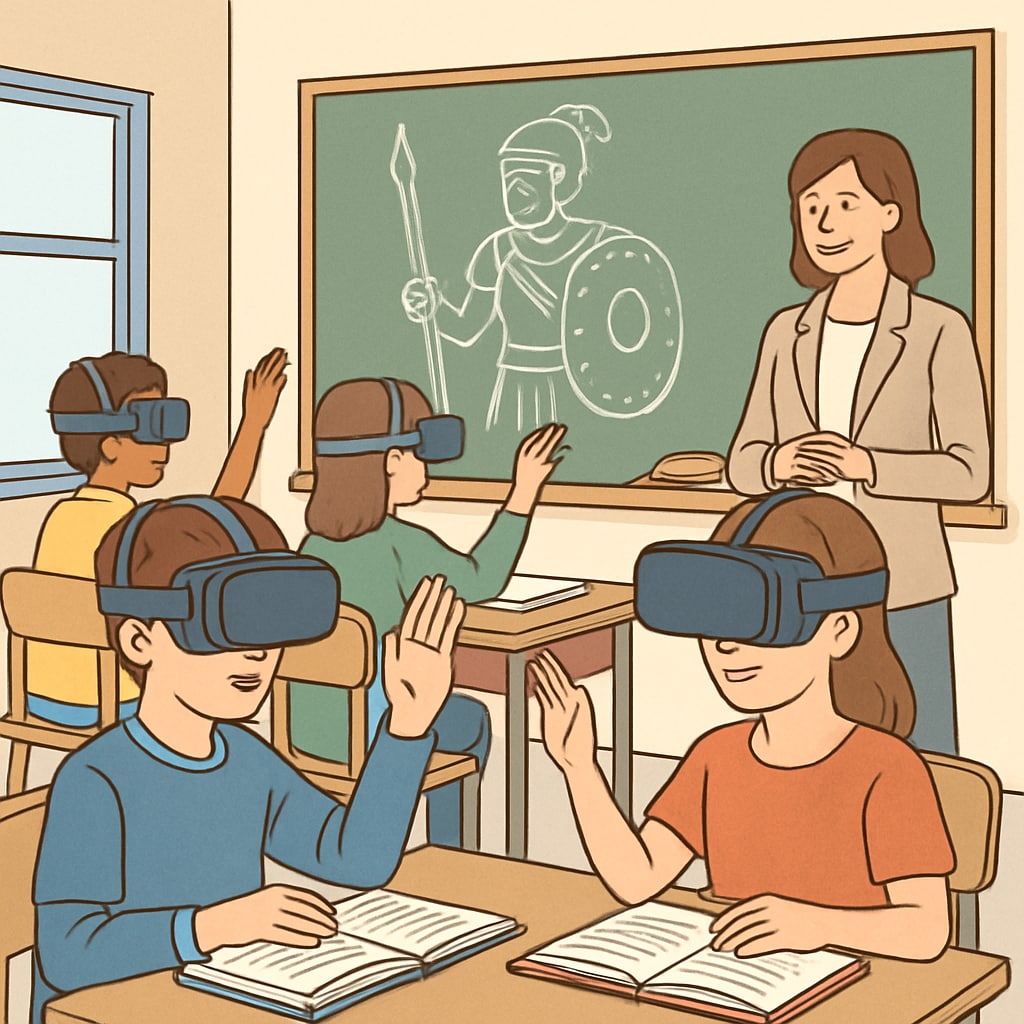Artificial intelligence (AI) is poised to bring transformative changes to school education in the next decade. From reimagining teaching methods to enhancing student learning experiences and optimizing assessment systems, AI promises to revolutionize the way knowledge is imparted and evaluated. However, this technological shift also presents challenges, requiring educators to find a delicate balance between innovation and tradition.
Revolutionizing Teaching Methods Through AI
AI-powered tools are already making their way into classrooms, offering personalized teaching experiences tailored to individual student needs. For example, advanced algorithms can analyze a student’s learning pace, strengths, and weaknesses, enabling teachers to deliver customized lesson plans. AI tutors, such as chatbots, can provide instant support and explanations for complex concepts, reducing dependency on a single educator.
Additionally, AI can assist teachers in automating repetitive tasks, like grading assignments or tracking attendance, freeing up valuable time for more creative and interactive classroom activities. As a result, educators can focus on fostering critical thinking and problem-solving skills among students rather than merely delivering content.

Enhancing Learning Experiences for Students
Students stand to benefit immensely from AI’s ability to create immersive and engaging learning environments. Virtual reality (VR) and augmented reality (AR), powered by AI, can transform traditional lessons into interactive experiences. For instance, instead of reading about ancient civilizations, students can “visit” historical sites through VR simulations, making learning more memorable and impactful.
AI also supports students with different learning needs. Speech recognition and natural language processing (NLP) tools can assist non-native speakers or students with disabilities by translating lessons or providing voice-to-text capabilities. In addition, adaptive learning platforms can cater to diverse educational backgrounds, ensuring inclusivity in classrooms.

Redefining Assessment and Feedback Systems
Traditional assessment methods often fail to capture the full spectrum of a student’s capabilities. AI introduces dynamic evaluation systems that can measure not just academic performance but also skills like creativity, collaboration, and emotional intelligence. For example, AI algorithms can analyze group projects and offer insights into individual contributions and teamwork.
Moreover, AI-driven feedback systems can guide students toward improvement in real time. Rather than waiting days for graded exams, learners can receive instant suggestions for enhancing their work, promoting a growth-oriented mindset. These systems also help teachers identify areas where students struggle, allowing for timely intervention and support.
Challenges and Ethical Considerations
While the benefits of AI in school education are undeniable, its implementation comes with challenges. Privacy concerns regarding student data are at the forefront. Schools must ensure that AI tools comply with data protection regulations and maintain transparency in their operations.
Another challenge lies in the potential erosion of teacher-student relationships. As AI takes on more responsibilities, there is a risk of reducing the human connection that is essential for nurturing emotional and social growth in students. Educators must strike a balance, using AI to complement—not replace—their role in shaping young minds.
Finally, the integration of AI may exacerbate inequalities between schools with varying resources. Institutions in underprivileged areas might struggle to adopt cutting-edge technologies, widening the educational gap. Policymakers must address these disparities to ensure equitable access to AI-driven advancements.
Preparing for the AI-Driven Future of Education
To make the most of AI’s potential in education, schools must invest in training educators to effectively use technology. Professional development programs can equip teachers with the skills to integrate AI into their curriculum and teaching strategies.
Furthermore, collaboration between AI developers, educators, and policymakers is crucial for creating ethical and practical solutions. By working together, stakeholders can ensure that AI tools align with educational goals and respect the diverse needs of students.
As AI continues to evolve, its role in school education will only grow more significant. By embracing its possibilities while addressing challenges, educators can create learning environments that prepare students for the demands of the future.
Readability guidance: This article uses concise paragraphs to maintain reader engagement. Lists and examples are included to highlight key points clearly. Overuse of long sentences and passive voice is avoided, while transition words ensure smooth flow.


